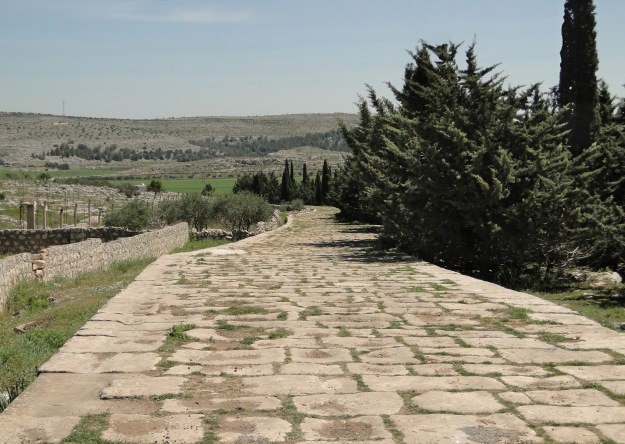The disciples were called Christians first at Antioch. Acts 11: 26.
I have referred more than once to my early ministry on the Moray Firth. One of my first discoveries: menfolk are better known by their nickname than by their Christian name. I was told that the community in which I lived was known for miles around for its ingenious way of giving boys “tee-names” by which they were known to their dying day. A tradition that could never surpass that of another place with a fondness for nicknames. The city of Antioch in the days of the early church enjoyed the reputation of being rather clever in the way they doled them out. And it was at Antioch that the disciples first received the name of Christian. A name that was used in contemptuous ridicule. Literally, it means these Christ-people. But to appreciate the impact of it we have to imagine it spat out, venomously, as the words were spoken, “these Christ-people! “ A name we are proud to own today, often maligned but transformed by the lives and witness of Christians – from contempt to respect.
The disciples were called Christians first at Antioch, but it was Jesus who named them Disciples! In the gospels it is the word most commonly used for a follower of Jesus. He said, “whoever does not come after me cannot be my disciple”, and to be a disciple is to be a Learner. Jesus called them to follow Him and named them disciples; learners. We are followers, not hangers-on…Jesus leads us on a pilgrimage like the one on which Abram the Old Testament patriarch embarked when, at God’s call, he left home not knowing where or how the journey would end, but ever pressing onward, constantly looking for new directions. If that is the road we take, it requires in us a humility and obedience which accepts that until the journey’s end we may not have all the answers and so we can never stop learning. It does not mean there are no circumstances in which we can be certain. We are close to heresy if, for example, we relegate the teaching of Jesus to mere speculation, or stumbling and faltering guesswork. Jesus prefaced his teaching with the words, “truly I say to you” and those who heard were amazed and overwhelmed by the marvellous assurance of it. “The people,” says Matthew, “were astonished because he spoke with such authority.” No point in following if we are not prepared to believe what Jesus says about life, about love, about God, aye, about sin! But it does require in us a respect and tolerance (a scarce commodity in some circles) to accept that sometimes, because discipleship is an ongoing learning experience, we have to acknowledge that some of our fellow travellers with a different understanding may be right and we may be wrong! Blind dogmatism is too often mistaken for assurance and certainty. “The disciples were called Christians first at Antioch,” but it was Jesus who called them disciples = learners. Living with him every day, watching how he handled all sorts of situations, listening to his private conversations and his public utterances, being privy to his dreams and aspirations, witnessing his tears and marvelling at his love for his heavenly father, those disciples would come to know and understand to what they were committed and what was expected of them to become like him, true men of God.
So the followers of Jesus were nicknamed in Antioch. It is a name that has stuck, a name that is honoured in spite of some very clever people’s endeavours to eradicate Christianity (and all other religions) and to establish a secular and humanist society in which the kingdom of God is a mere fairy tale. Why has this nickname, given all those years ago, survived the onslaughts of opposition and persecution? When Ignatius, an early Christian father, was on his way to Rome to be martyred he wrote, “Let me not merely be called a Christian, but be found as one.” The answer to our question, our prayer and promise for today and tomorrow.

